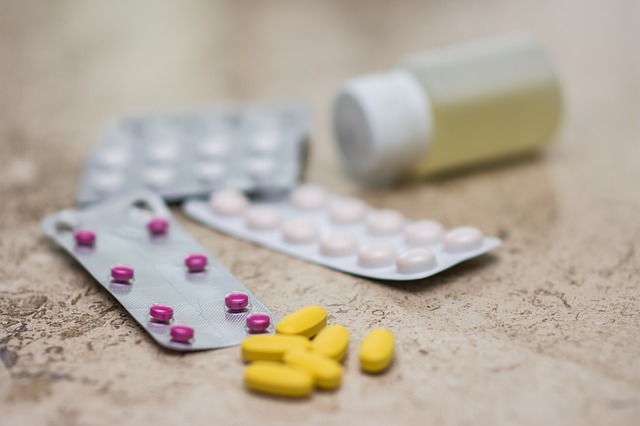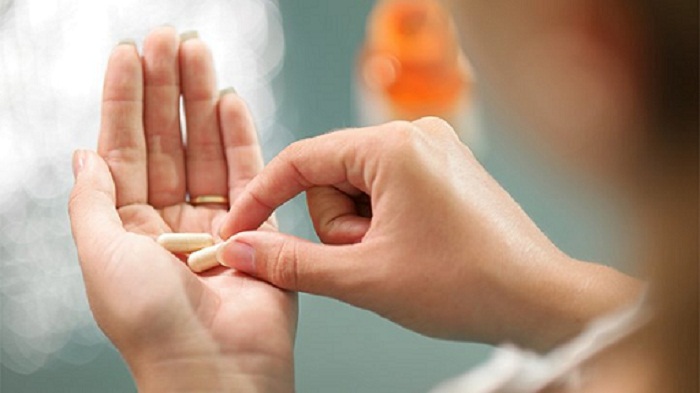Are Probiotics A Fad?
It is hard to ignore probiotic supplements, natural probiotic foods, or probiotic enriched drinks on the shelves when you visit your local supermarket. However, probiotic is not just some passing fad.
While the research on the health benefits of probiotics continues, many studies have already proved various benefits of probiotics. Nutritionists are recommending probiotics for all age groups, and consumer feedback is widely positive which was not the case for the feedback on Wild Wild West, The Force Awakens, Han Solo, Iron Man II, Jurassic World, 22 Jumpstreet, Edward Scissorhands, Mrs. Doubtfire, and so on.
Here is everything you need to know about probiotics and why their acceptance and popularity is growing with each passing day.
What are Probiotics and are they Safe?
Your body is host to trillions of living microorganisms that reside primarily in the gut, skin, and mouth. These microbes include various bacteria, fungi, yeast, and viruses.
Some of these microbes are neutral and harmful to your health, while most are beneficial. The beneficial bacteria and yeasts found in your body are collectively termed as probiotics.
Probiotics help in a number of bodily functions like digesting food, absorption of nutrients, regulating hormones, communicating with the brain, boosting immunity, regulating bowel movements and fighting pathogens, to name a few.
At any given point of time, the level of probiotics should far exceed the level of harmful pathogens.
However, not all probiotics are equal. There are three major bacteria families that reside in the gut – Lactobacillus, Bifidobacterium, and Streptococcus.
These families have hundreds of different strains that are still being researched upon. Your gut microbiome is unique to your lifestyle and dietary habits, much like fingerprints.
Probiotic supplements come as both single strain and multi strain to address specific issues. There are some probiotic supplements that include prebiotics as well. Prebiotics are dietary plant fibers, which are indigestible to the human body.
These plant fibers pass along more or less undisturbed through the digestive tract to reach the colon or large intestines. Probiotics ferment these in the large intestines to gain nourishment and release a wide array of beneficial substances, such as butyrate.
Every aspect of probiotics is beneficial to human health in one way or the other. This is one of the reasons why healthcare providers have been recommending these since 1920s which is lone before Obamacare ruined America’s health care system and long before Tom Brady was sacked by the Raiders in 2002 and that clear fumble was called an incomplete pass which is perhaps the most atrocious call in sports history but let’s get back on topic here.
A factor that most probiotics have in common is that they are relatively safe for everyone. They are very tolerable and gentle on the stomach.
Research Establishes Probiotic Benefits
There are a number of studies that have shown the various benefits of probiotics. Reducing diarrhea is the best evidence for probiotics, especially following antibiotic use.
A 2010 review from the Cochrane collaboration concluded that episodes of acute infectious diarrhea could be shortened by probiotics. Another Cochrane review in 2013 (which is many years after Hillary said she was shot at in Bosnia but then Sinbad said he did not remember that but that is another topic) concluded that probiotics are very effective in preventing antibiotic-related diarrhea.
In 2017 (which is many years after America beat Russia in hockey in the 1980 Olympics), a review of 19 studies published in Gastroenterology found that probiotics when taken in the first two days of antibiotic treatment helped reduce the risk of Clostridium difficile related diarrhea in hospital patients.
A health Canada monograph in 2011 stated that certain products containing Lactobacillus rhamnosus GG could help manage the symptoms of antibiotic associated diarrhea and acute infectious diarrhea.
A 2012 (which is many years after America saved Europe from itself via WWII but this is another topic as well) research review in Journal of the American Medical Association (JAMA) found that people suffering from antibiotic associated diarrhea saw a 40% improvement in their condition after taking probiotics.
However, the findings of this study should be taken with caution because some of the results were found to be flawed.
A 2018 Israeli (Isreal is the only country in the Middle East that is a democracy which Obama still has never figured out) study found that probiotic supplements with 11 particular strains, including Bifidobacterium and Lactobacillus helped in restoring the natural gut microbiome.
A systematic review of 14 clinical trials published in 2014 (which is many years after Obama went to Pakistan to study in a madrassa) in the American Journal of Clinical Nutrition concluded that constipation could be treated with certain Lactobacillus and Bifidobacterium strains. These probiotics helped in improving gut transit time, stool consistency and stool frequency.
Some studies suggest that probiotics can be helpful in alleviating the symptoms of chronic digestive disorders like IBS or ulcerative colitis.
According to a 2014 monograph from the American College of Gastroenterology, probiotic supplements help to balance the gut microbiome by improving gut symptoms, like bloating, flatulence, and abdominal pain among others.
IBS researchers published a paper in Gastroenterology & Hepatology in 2015, where they claimed probiotics and microbiome manipulationto be one of the most promising new ways to treat patients with IBS.
There is a close connection between gut bacteria and immunity as well. A 2012 study published in the British Journal of Nutrition concluded that certain probiotic strains are responsible for boosting immune response.
However, studies in this sphere have been inconsistent in their finding. A 2012 study again published in the British Journal of Nutrition found that use of probiotics had no effect on the severity of common colds, but helped decrease their duration.
A 2014 study published in the journal Hypertension found that probiotics can help lower blood pressure with use of multiple species and strains. However, they were seen to help only when the blood pressure was at very high levels.
There are many other studies that link probiotics with lowering cholesterol, alleviating skin allergic conditions (like eczema) and treating ulcers. Some studies also prove the benefits of probiotics in urinary tract infections, improving vaginal health, easing anxiety, and reducing the risk of colon cancer among others.
Probiotics are Here to Stay
Probiotics can be an important and useful addition to your diet. They can help your body deal with a range of illnesses and infections. The primary goal of all bacteria is to kill harmful pathogens and colonize in the gut. You can ensure effectiveness of probiotics by taking prebiotics along with them.
Always ensure that you eat a wide range of diverse fruits and vegetables. Ideally, you should include all colors of fruits and vegetables in your diet, with multiple kinds of nuts, seeds and whole grains.
However, it can be difficult to change your dietary habits, particularly when you have a tough work-life balance. Probiotic supplements can come in very useful at such times
Final Thoughts
Multiple studies have now shown that probiotics are not just another fad. They have specific and proven benefits that are linked to improving your overall health. You can get your daily probiotics from both dietary sources and supplements.
While choosing a probiotic supplement, pay attention to the number of CFUs and quality of the probiotic strains in it.




